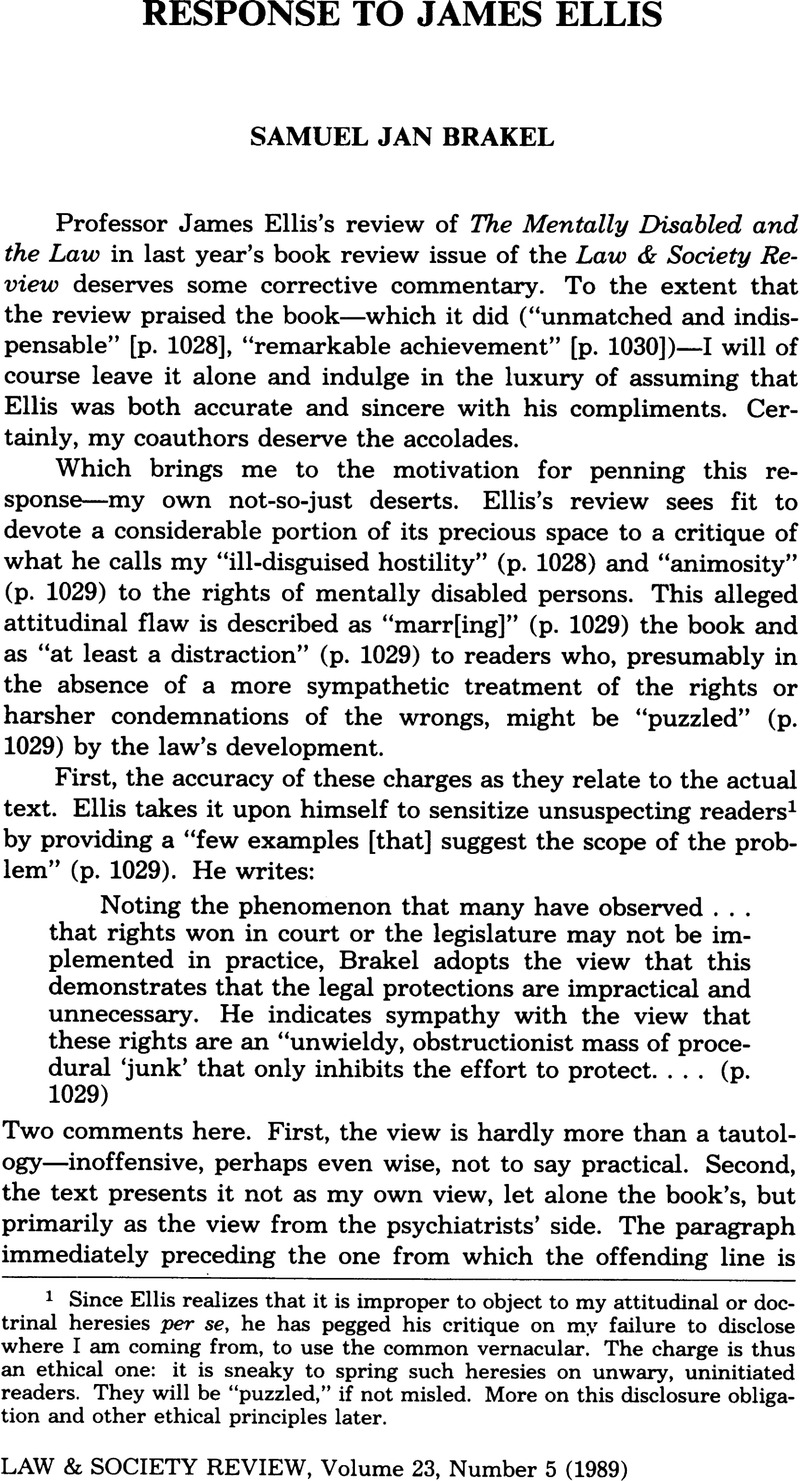No CrossRef data available.
Article contents
Response to James Ellis
Published online by Cambridge University Press: 01 July 2024
Abstract

- Type
- Reply
- Information
- Copyright
- Copyright © 1989 The Law and Society Association.
References
1 Since Ellis realizes that it is improper to object to my attitudinal or doctrinal heresies per se, he has pegged his critique on my failure to disclose where I am coming from, to use the common vernacular. The charge is thus an ethical one: it is sneaky to spring such heresies on unwary, uninitiated readers. They will be “puzzled,” if not misled. More on this disclosure obligation and other ethical principles later.
2 Allow me to use a footnote for a couple of other points. Ellis writes that my occasional use of quotation marks around such terms as “rights” and “equal” demonstrates my “disdain” for these concepts. He is wrong. My intention was to indicate that the latest articulations of these concepts are not viewed by everyone as in the best interest of mentally disabled persons. Particularly not by many psychiatrists—half the audience for whom the book was written.
Elsewhere Ellis makes the snide remark that I am “likely to be disappointed” in not seeing my “prediction” fulfilled of a “steep decline in legal activity in the mental disability field.” What I said was that such a decline was probable “as we enter an era of decreasing social outlays generally, and, in particular, drastic cutbacks in the support for legal resources . . . for the disabled or the poor”—an accurate factual observation of the political/fiscal climate of the 1980s that carries no value judgment with it whatsoever.
3 See note 2 on the meaning of the quotation marks. Ellis in a letter written after this response disavows that he gleaned my hostility to progress from anything other than the M.D. book. If so, I'm ready for the men in their white coats.
4 See note 1. On the subject of the ethics of reviewer and reviewee, I feel compelled to disclose that Ellis was a scholar in residence at the American Bar Foundation for a year's stint during the three-plus years it took to do the Mentally Disabled project and that he subsequently returned to use, with my permission, the project's statutory charts for his own research purposes. Not a word about my “hostility” at those times. Ellis's reply is that he had not seen the text at that point.
5 It is not unethical to point out the professional self-interest that mars the reform orientation of many academics in their chosen fields. The necessity to survive academically—to keep the business active, the model legislation flowing, the consulting contracts coming—is at least part-mother to the continual invention of new and larger rights. There is little to stem the flow, as professional myopia contributes to the incapacity to perceive the limits, even if the willingness were there—no one can see the merits of the “other side's” position, whether, as in this instance, it is the lawyer's side or the psychiatrist's. The result is hostility to any interloping fence straddler who dares to argue in favor of the dam or a measured application of the brakes.




